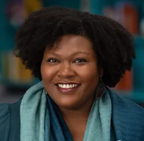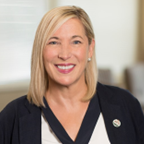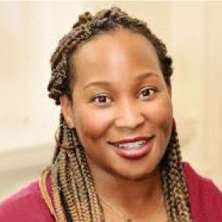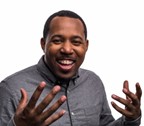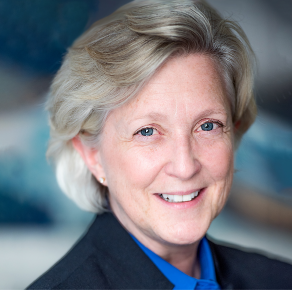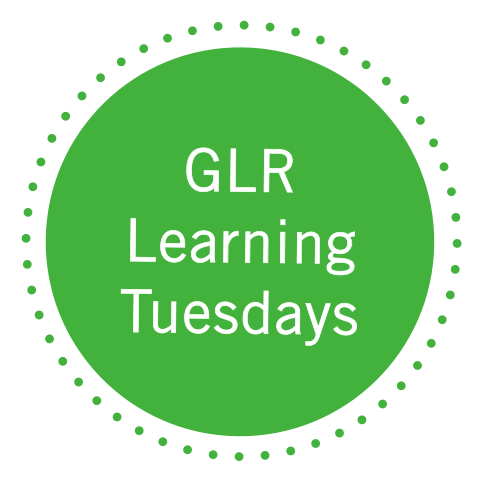
- This event has passed.
Children’s Books: From Access to Opportunity

“If we don’t increase access to rich books that speak to children in a way that really honors their own identity, their community, but also expand the minds of even children who are already represented in the literature. If we don’t do that, then we’re actually not doing what our children need for us to do, which is ensure that they are prepared for school and for life, but also prepared to solve what we know are going to be even bigger social, economic and new global problems like climate change. So we need to understand the power of diverse books, not just for racially, ethnically, linguistically minoritized children, but it’s really for our global society.”
– heoma U. Iruka, Ph.D., University of North Carolina, Chapel Hill
In this July 16 GLR Learning Tuesdays session, entitled Children’s Books: From Access to Opportunity and co-sponsored by Early Learning Nation, Iheoma U. Iruka, Ph.D., of the Frank Porter Graham Child Development Institute at the University of North Carolina, Chapel Hill outlined research underscoring the importance of ensuring young children have access to engaging and diverse books that nurture a love of reading.
Freelance journalist Leigh Giangreco moderated the conversation, engaging Iruka and four leaders of innovative programs — Tabitha Blackwell of Book Harvest, Durham; Nora Briggs of The Dollywood Foundation and Dolly Parton’s Imagination Library; Alvin Irby of Barbershop Books; and Kyle Zimmer of First Book. These programs are working to end book deserts and ensure children have ready access to books that foster a love of reading and function as “mirrors, windows and sliding glass doors” that enable them to see themselves reflected in the stories, explore other experiences and enter worlds other than their own, building deeper understanding and empathy.
Blackwell explained how Book Harvest is promoting an “early literacy system of care” designed to deliver evidence-informed programs that ensure literacy is nourished for every child during the first decade of life. These efforts begin with health care partnerships that enable the organization to send infants home from the hospital with a starter home library of 10 books. The work continues by supporting children and families as they navigate the transition into preK and kindergarten and by enabling school-age children to select books to take home and read during the summer months. Book Harvest provides additional wraparound supports for Medicaid-eligible families from birth through age 5, offering literacy coaching home visits, additional books and other resources. Launched in Durham, North Carolina, Book Harvest has expanded into 13 other cities across the state and four communities beyond North Carolina.
“Everyone thinks that it’s this complicated thing, but we say ‘Just talk to your child. Look at the book and name the colors on the page.’ It’s really bringing home the fact that [literacy] begins at birth, that reading to them is important and it’s a practice….It doesn’t have to be reading word for word everything that’s on the page. It truly is just connecting with your children….That’s family engagement. They are the ones doing the work. We are just walking alongside them and amplifying the good work they’re doing and letting them know ‘You got this and you can do it.’”
-Tabitha Blackwell, Book Harvest, Durham
Briggs, along with a video greeting from the foundation’s “Dreamer in Chief” Dolly Parton, shared how Dolly Parton’s Imagination Library (DPIL) is a community-based, program that delivers high-quality, age-appropriate books to children each month until age 5 at no cost to the family. Since starting in Parton’s home county in Tennessee in 1995, the program has delivered more than 250 million books as it has grown to serve one out of every seven children in the United States, with a goal of reaching one out of four. DPIL partners with state departments of education and other state agencies to scale statewide and ensure they reach children in the foster care, WIC and other public systems. DPIL also collaborates with local school districts, public libraries, birthing hospitals and other community partners to reach and enroll children.
“The research and the science are very clear. We cannot wait for kindergarten for children to have access and exposure to books and reading. We need to reach children early, starting at birth, and this primarily happens at home. Reading at home requires books and not all families have access….This is where we can help….A book comes to the home. It’s a gift. It’s free. No means testing or proving that they need it. They don’t need to go anywhere to pick it up or return it. They can just snuggle up and read together.”
-Nora Briggs, The Dollywood Foundation
Irby introduced Barbershop Books and the ways in which it is working to inspire Black boys and other boys of color to read for fun and to view themselves as readers. It’s flagship program, also called Barbershop Books, engages the boys it is seeking to serve in curating books to be placed in the barbershops and provides tips, training and supports to the barbers to help them play the role of trusted messenger and role model in encouraging reading. Serving about 15,000 children each month, the program currently partners with 265 barbershops in 50 cities across 20 states, often collaborating with the libraries, school districts and local governments in the communities as well. By focusing on books that are of interest to the boys and the environments and modalities that make reading personally meaningful, relevant and engaging, the program is working to enhance the boys’ reading identities.
“For many children, their resistance to reading or reluctance to reading is actually a form of self-love. Nobody wants to be tortured by anything and some of the ‘whack’ books that are being pushed on kids actually cause them to have negative reading attitudes. So boys don’t think they’re readers, not because they don’t actually read, but because what they read is not affirmed in the classroom. It’s not used for instructional purposes. A big part of our work is to speak very explicitly about reading trauma….It’s like a child who has been bitten by a dog. They don’t care how cute and nice your dog is, the sight of a dog can create anxiety and fear. For many children who’ve had very traumatic reading experiences, they don’t get those warm and fuzzies as children who have had someone curl up with them to read.”
-Alvin Irby, Barbershop Books
Zimmer explained how First Book is committed to elevating quality education for children in need from birth through age 18, outlining the three programs that advance the organization’s mission: a research arm that generates about 20 studies each year on topics such as the impact of diverse books in the classroom, mental health and reading and literacy; an Accelerator platform that delivers resources on building literacy-rich classrooms, promoting emotional wellness and other topics to educators; and First Book Marketplace, a nonprofit e-commerce site providing books and other resources. She explained how First Book is collaborating with a wide range of other organizations — including those featured in this webinar — to ensure children and educators have access to diverse books. Zimmer added that First Book is building an aggregated market designed to influence the economic model of the publishing industry to lower the cost of children’s books and demonstrate a vibrant demand for diverse books.
“All of us on this panel and all of us attending this webinar believe deeply that we need to elevate reading. We need to elevate wonderful, diverse books in the lives of kids. First Book’s approach to that is a systemic strategy that makes lower-priced, higher-value, higher-diversity, higher-relevancy books available to the adults in kids’ lives and also lowers the costs for all of the heroic organizations like the ones on our screen. What we’re trying to do is really elevate the field and lower the costs.”
-Kyle Zimmer, First Book
Panel

